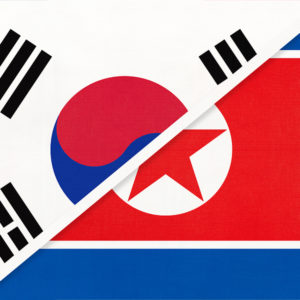It’s time for a reality check on North Korea. No, I’m not suggesting we come to our senses about Kim Jong Un and his nuclear program and try to bludgeon him into “denuclearization.” We all know he’s not giving up on the program on which he’s staked the pride of his fiefdom and dynasty. Nobody is even talking up that fantasy.
No, what we should realize by now is that Americans, led by President Joe Biden, find it hard to focus on North Korea when Kim’s not firing off missiles or ordering nuclear tests. People here are just not fixated on North Korea except when there’s a crisis, or mini-crisis. Then they may wake up for the duration of one or two news cycles and move on.
That’s why there’s not all that much excitement about the summit at the White House between Biden and President Moon Jae-in. The Korean media will be watching whatever the two presidents and their aides are saying, looking out for nuances and innuendoes, but sorry to say, the American public, not to mention maybe Biden and his team, are looking elsewhere.
Robert Gallucci, the State Department smooth-talker who negotiated the 1994 Geneva framework agreement that supposedly got the North to stop making nuclear warheads, made the point the other day. “The American sides,” he said, “are famous for not being able to walk and chew gum.”
That old-fashioned line is a folksy way of saying the ponderous, massive bureaucracy of American leadership is not able to concentrate on more than one huge critical problem at once. Gallucci, talking at a virtual panel staged by the Center for Strategic and International Studies, said when it came to foreign news the U.S. was mesmerized by Iran’s nuclear program to the exclusion of the rest of the world.
That was before Israel started staging airstrikes on the Palestinians in retaliation for missiles fired from the Gaza strip by militant Hamas guerrillas. In the run-up to the summit, the Israeli-Palestinian conflict has been top news for days while Korea is barely mentioned. Oh, we can expect stories on the summit in the weekend papers, but they won’t get much read unless, well, unless Kim Jong Un fires a few more missiles.
Even those missile shots are getting a little boring. Kim will have to order a new one, an SLBM, a submarine-launched ballistic missile, capable of blasting off a submarine submerged quite close to a likely American target, before anyone gets too interested. Even then, the excitement will last a day or two at most.
Which is actually a good thing. We don’t have to worry about Korean War II breaking out, and Moon will go home happy that Biden has told him he would love to enter talks with the North Koreans.
If the Biden-Moon summit is not be all that meaningful in terms of North Korea, other dividends are possible. In fact, the summit may produce results that are getting even less publicity than the impasse with North Korea but are immediately significant in terms of the interests of both Americans and Koreans. Here’s the trade-off.
The Americans, like manufacturers around the world, are getting desperate for semiconductors, critical for manufacturing just about everything including motor vehicles. There’s a worldwide shortage of them, and Korea’s major chip makers, the dominant Samsung Electronics and second-ranking SK Hynix, aren’t keeping up with demand.
The other side of the story is that Koreans, having done a fine job of holding COVID-19 in check by rigid testing and quarantining, still need millions and millions more vaccines to make sure nearly everyone’s getting the jab. The American manufacturers, Pfizer, Moderna and Johnson & Johnson, may be able to answer the Korean demand.
How about a deal, Korea exports more and more semiconductors, satisfying U.S. manufacturers, while the U.S. showers Korea with COVID-19 vaccinations?
As for talks with North Korea, they’re so hazy, so full of holes, that it’s beyond imagination they could ever be successful. Recent polls show young Koreans are favorably disposed toward the U.S.-Korean alliance and not enthusiastic about another phony agreement with North Korea.
But semiconductors and vaccinations are another matter. No doubt this kind of a deal would rely on understanding and negotiations on details that defy immediate explanation, but the summit might go down as a success if Biden and Moon agree on something that both sides need right now.

